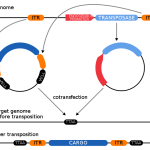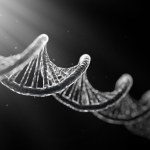For decades, excessive, unscientific regulation has slowed innovation using molecular genetic engineering. Policymakers must awaken to the realization that regulations based on pseudoscience or nescience are destructive and regressive. Tremendous innovations await, if only we have the wisdom to permit them to be developed.
genome editing
Technology has helped to double food production in the last 50 years. We have the cheapest, safest, most abundant food supply in history, but the enemies of progress, both foreign and domestic, continue to attack the technologies that have made that possible.
Some scientific discoveries, like human genome editing, challenge our thinking on many levels. And there are many voices getting into the mix of the debate on this subject, taking on the unenviable task of "playing God."
Two new studies, one published in Science and the other in Nature, by one of the pioneers of the CRISPR-Cas9 technique show the power and specificity of the genome-editing technique.


